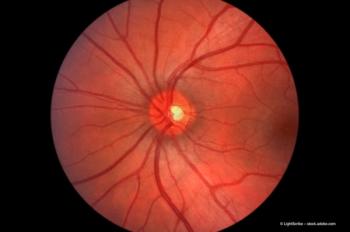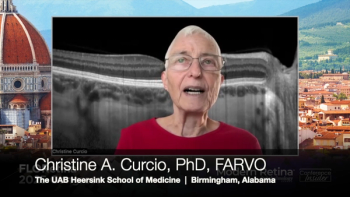
Preventing AMD through diet?
A high dietary intake of vitamin E and zinc reduced the risk of AMD.
The association between certain factors, such as genetics, advancing age, smoking and high blood pressure, and the incidence of age-related macular degeneration (AMD) have long been known. It is only within the last decade, however, that a link has been made between diet and AMD progression. Specifically, a correlation between dietary antioxidant intake and AMD has been noted by many researchers; with a diet high in certain antioxidants thought to delay AMD progression.
On a quest to establish the relationship between regular dietary intake of antioxidants and incidence of AMD, the Dutch research team assessed diet at baseline in the Rotterdam Study (1990-1993) using a semiquantitative food frequency questionnaire, with follow-up continuing into 2004.3 The Rotterdam Study is a population-based, prospective cohort study of the frequency of determinants of common cardiovascular, locomotor, neurologic and ophthalmologic diseases.4,5 Van Leeuwen and team were able to establish an eligible base of 10,275 participants (population aged ≥55 years) from this study group, of whom 6,780 (66%) participated in ophthalmic examinations.
The team were able to establish signs of AMD through the presence of drusen; white retinal deposits, characteristic of early-stage and predictors of late-stage AMD. Late AMD was defined as geographic atrophy (central and non-central), choroidal neovascularization or a combination of both.6 Incidence of AMD was defined as the presence of early or late AMD in at least one eye at one of the follow-up examinations.
During the course of the lengthy study period, the study sample had reduced to 4,170 subjects, each of whom had normal cognition, lived independently, had reliable dietary assessment, could be accurately screened for signs of AMD and participated in at least one follow-up examination.
In order to prevent non-dietary antioxidant intake from distorting the data, the research group repeated the analysis excluding those people using antioxidant supplements at baseline and also investigated the combined effect of antioxidants from food and from supplements.
What's diet got to do with it?
Upon analysis of the results, having made various adjustments to account for factors such as age, smoking status, body mass index, alcohol intake, and so on, 560 (13.4%) people were diagnosed with incident AMD, the majority of cases being early-stage AMD (518 people; 92.5%). Of the remaining subjects diagnosed with late-stage AMD, one-third had the atrophic (dry) form of the disease whilst the remaining two-thirds were diagnosed with neovascular (wet) AMD.
Having excluded any cases with clinical signs of early AMD at baseline, the authors noted a significant inverse relationship between dietary intake of vitamin E, iron and zinc, with a 1-standard deviation increase in intake of vitamin E and zinc being associated with an 8% and 9% reduced risk of AMD, respectively. Overall, a dose-response relationship between vitamin E and zinc intake, and reduced risk of AMD was evident.
Furthermore, having analysed the influence of the combined dietary intake of the four antioxidants studied in AREDS, an above median intake of the combination of vitamins C and E, beta carotene and zinc was associated with a 35% lower risk of incident AMD.
Newsletter
Get the essential updates shaping the future of pharma manufacturing and compliance—subscribe today to Pharmaceutical Technology and never miss a breakthrough.




























